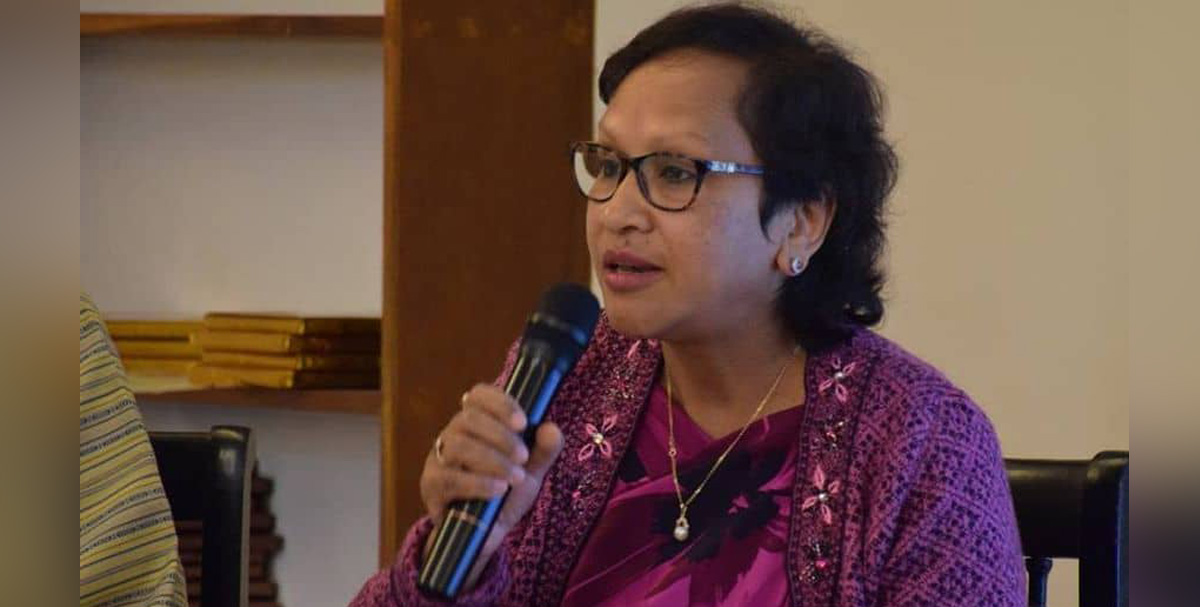
A week after Shillong Times editor Patricia Mukhim sent her resignation as a member, and accused The Editors Guild of India (EGI) of only speaking up for ‘celebrity editors/anchors’, EGI has finally expressed its concerns on her case.
The Guild issued a statement, stating that it is “deeply concerned” to note how Mukhim is being “dragged” through a cumbersome criminal charge procedure borne out of a complaint related to a social media post. “Mukhim’s case is a reflection of the larger threats to freedom of speech in India, which operates under an unwieldy framework of laws that are often used indiscriminately by government and law enforcement agencies to muzzle dissent,” wrote EGI president Seema Mustafa, general secretary Sanjay Kapoor and treasurer Anant Nath in their joint statement .
The Guild added that “several provisions across multiple laws give a handle to government agencies & law enforcement authorities to lodge criminal cases against journalists wherein the criminal complaint procedure itself becomes an exacting punishment, and acts as a deterrent against the exercise of free speech”. They underline a “need for the higher judiciary to take cognisance” of these crucial issues that impede freedom of speech. It has asked the judiciary to “issue guidelines to ensure that wanton use of laws does not serve as a deterrent to a free press.” According to the Telegraph, Mukhim thanked the Guild for issuing this statement.
Earlier this month, Patricia Mukhim had quit the EGI citing “complete silence” on the case against her. She accused the journalists’ body of responding with “alacrity”, and issued a statement condemning Arnab Goswami’s arrest but remaining silent in her case.
Mukhim, in a Facebook post on July 4, had called out the Lawsohtun village council for failing to identify the “murderous elements”, when masked people attacked five boys at a basketball court in the village. No one was arrested in the case, reported NDTV. Mukhim had sought that Meghalaya Chief Minister Conrad Sangma and the Dorbar Shnong, the traditional local body, take action against the accused.
However, the village council in Meghalaya filed a complaint against Mukhim accusing her of trying to rake up sentiments, she was also accused of defamation. Soon the local police filed a criminal case against Mukhim. She approached the Meghalaya High Court to cancel the case but was reportedly turned down on November 10 when the HC refused to quash the FIR filed against her. According to The Telegraph, the court observed that the post “apparently seeks to promote disharmony or feelings of enmity, hatred or ill-will between two communities”.
Mukhim defended her post, stating that she only raised the issue of “continued” attacks on non-tribal persons in her post. According to news reports Mukhim has now decided to challenge the HC order in the Supreme Court. Mukhim also claimed that she had briefed the Editor’s Guild about this case but did not get the support she sought and hence decided to resign from its membership.
She had told mediapersons at the time that she came from “the fringes both geographically and in terms of my own status in an association I consider hierarchical by its very composition. I had shared this High Court order with the Guild hoping that it would at least give out a statement condemning it but there was and has been complete silence from the executive.” She added, “Ironically, the Guild responded with alacrity and issued a statement condemning Arnab Goswami’s arrest (a non-member), not on grounds of journalistic pursuits but on an abetment to suicide case. I see this as a classic case of the Guild playing to the gallery to defend celebrity editors/ anchors whose voices matter while choosing to deliberately ignore a plea (unstated) from one of its members.”
Related:
Patricia Mukhim quits Editors Guild of India citing “complete silence” on case against
Right to free speech does not mean a licence to promote hate speech: Editors Guild of India